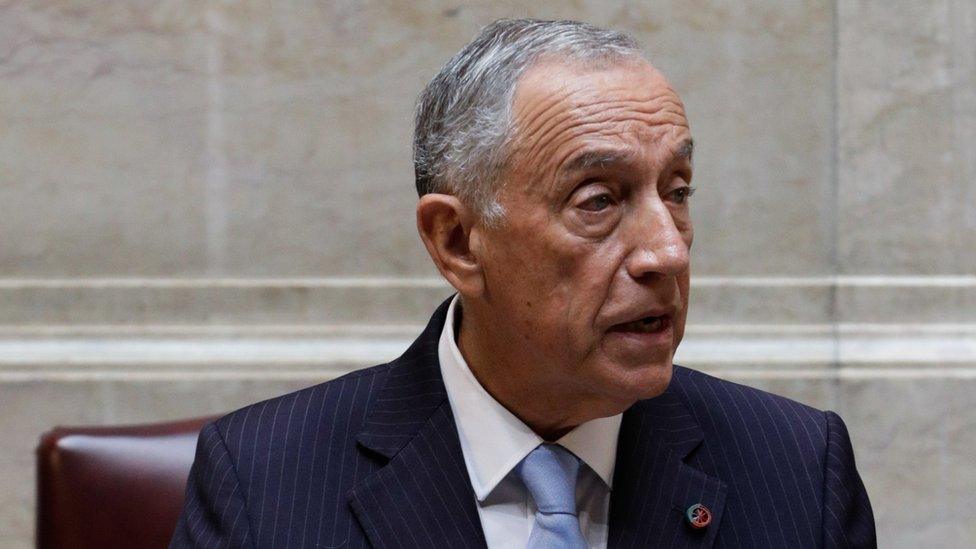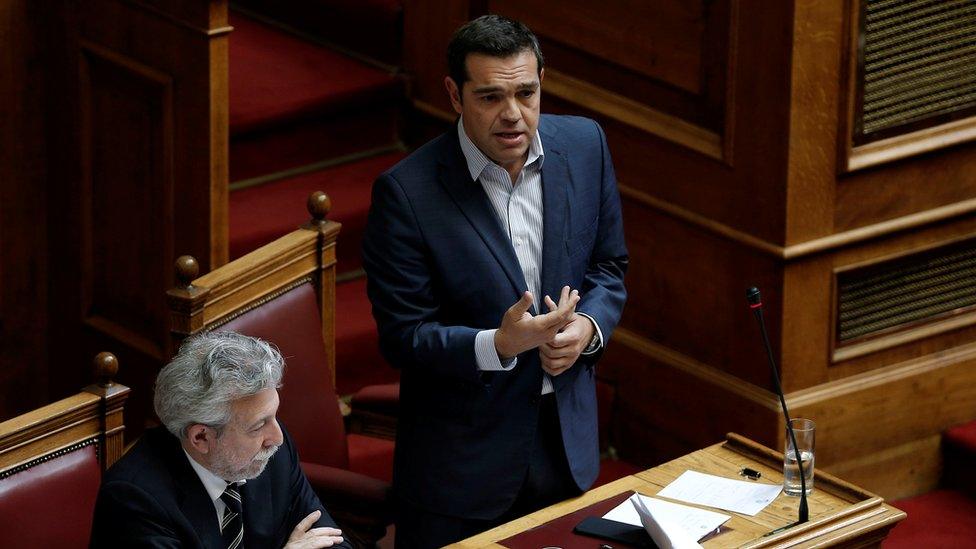Portugal's president vetoes new gender-change law
- Published

LGBT activists had welcomed the law when it was approved last month
Portugal's President Marcelo Rebelo de Sousa has vetoed a law that would have made it easier for people to change their gender and name in documents.
The law, approved by parliament last month, would have allowed citizens to make the legal changes from the age of 16 without the need of a medical test.
Currently, people must be at least 18 years old and present a medical report.
The president told MPs to consider the need of a medical test for those under the age of 18.
Under the proposed law, those aged between 16 and 18 would need to have the change of gender approved by their parents or legal representatives.
The law needs to be signed by the president to take effect.
What happens now?
Parliament can either amend the law in line with the president's suggestions or confirm the current legislation with the approval of an absolute majority of MPs. In this case, the president would be obliged to sign it into law.
Mr Rebelo de Sousa called for "the provision of prior medical evaluation for citizens under 18 years of age" in a statement posted on the presidential website, external (in Portuguese).
Explaining his decision, he said that if there is a possibility that the individual will undergo gender reassignment surgery in future then it would be "sensible" to seek a medical opinion at an early stage.
What has the reaction been?
Lawmakers celebrated with a standing ovation when the legislation was approved on 13 April by 109 votes in the country's 230-seat parliament.
Activists welcomed the "groundbreaking" law, saying it respected the right of self-determination. But critics opposed allowing changes without a medical report and lowering the minimum age.
Citing those divergences, Mr Rebelo de Sousa said the changes being introduced were "far from being a consent" among politicians and society.

The president told MPs to consider the need of a medical test for those under the age of 18
There was mixed reaction to the veto:
LGBT rights advocacy group ILGA-Europe called the decision "frustrating", external, saying: "Young people must be able to access a legal gender recognition procedure that is fair and trusts them to know who they are"
Margarida Faria, president of a group representing parents in favour of sexual orientation freedom, Amplos, said the president did not challenge the right of self-determination for those from the age of 18, "an important progress", external
The Association of Portuguese Catholic Doctors welcomed the decision saying the opinion of doctors in these cases is of "huge importance"
Nuno Magalhães, from the right-wing party CDS-PP, also supported the veto while Isabel Moreira, an MP from the Socialist Party who voted in favour of the law, said changes could be made to it
The new legislation also outlawed unnecessary surgery on intersex children.
What's the legislation across Europe?
Only five other European countries have a model based on self-determination, according to ILGA-Europe: Malta, Norway, Denmark, Ireland and Belgium.
In the UK, individuals need to be 18 years old to require a legal change of their gender, a process that can take up to five years and requires a diagnosis of gender dysphoria from a psychiatrist.
- Published13 April 2018

- Published24 July 2017

- Published10 October 2017
